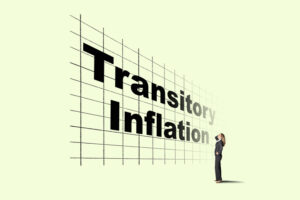Does Anyone Honestly Believe That Inflation Is ‘Transitory’ Anymore?
The comments below are an edited and abridged synopsis of an article by Tyler Durden
The story of Ponce de Leon (related here) tells a simple story: It doesn’t take a Ph.D. in economics to understand that, when you flood the financial system with money, it’s going to have an effect on prices.

Earlier this year, when the US government announced sharply higher inflation for March, the Fed deemed it to be transitory. That was six months ago. Inflation has surged since then. It’s not hard to understand why.
Last year, the Fed expanded the money supply more than in any other year in US history except for 1943. At the same time, the government forced businesses to close, and then paid people to stay home and not work.
So there was a lot more money in the system, but fewer goods and services being produced, which has created substantial inflation.
Here’s what’s really interesting, though: The Fed tacitly acknowledged this big inflation problem. They understand that their zero interest-rate policy and their bonanza of money printing are both driving prices higher. They also understand that inflation is a major concern. But then they essentially said, “Yeah, we’ll get to it in a couple of months.”
This was astonishing. There has been the bond-buying program, interest rates, and other factors. As if that weren’t enough, they’re trying to raise taxes on business and investment income, creating even more disincentives.
President Biden insists that he’s a capitalist, but he supports some extremely anti-competitive, anti-capitalist policies.
Stifling competition chips away at one of the last major counterbalances to inflation at a time when the Fed is in absolutely no hurry to reverse its inflationary policies.
Does anyone honestly believe inflation will be transitory?
Ironically, even the Fed doesn’t believe it. Because in their updated economic projections, they quietly revised their 2022 inflation forecast notably higher.
